Synopsis
The first immigrants from Toltecamila, Puebla, arrived in New York City over 30 years ago. Shortly after, as they adjusted to their new lives in the United States, they began to organize amongst themselves as a club to send money back to their hometown to build urgently needed, basic infrastructure projects, including building the town’s sewage system, paving its roads, renovating the town’s church, and helping to equip its schools, among others. To this date, they have raised hundreds of thousands of dollars collecting money door to door exclusively from others from Toltecamila, and through public, social events, with minimal state involvement in their efforts.
The absence of the Mexican state in developing this basic infrastructure in Toltecamila provides the film with a jumping-off point to explore the ways in which club members view a town that many have not visited since their childhoods, the memories they still treasure of the place that continues to govern an important part of their lives in the United States, and the infrastructure projects that they finance but may never enjoy in person.
Off-camera interviews with members of the club about their experiences living in Toltecamila; coming to New York; participating in the club; and maintaining their connections to their hometowns are juxtaposed with visual explorations of the spaces they have built for themselves in their new country. Tracking shots underscore the importance of these communal spaces and the people that inhabit them while hand-held, “home movie”-style footage highlights the resilience of these people and this community. It is these spaces that provide them with a sense of security otherwise denied to them in the United States, especially under the current Administration. They also give them the means by which they can imagine and build spaces for the people they left behind in Mexico; help those still in Toltecamila to avoid the arduous emotional, geographic, and personal journeys that they have taken; and allow them to enjoy the hometown of their dreams that they are building but may never see in all of its glory.
Through the lens of these “children of Toltecamila,” What We Have Built seeks to examine changing notions of home, identity, community, and power (political, economic, and otherwise) as articulated by its members. This project is a part of Just to Get By, a UnionDocs Collaborative Studio Production.
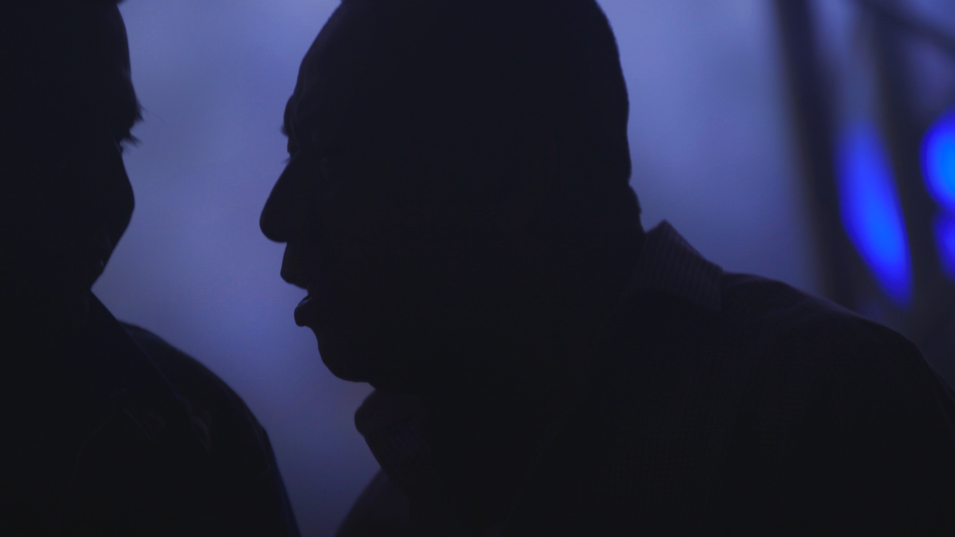
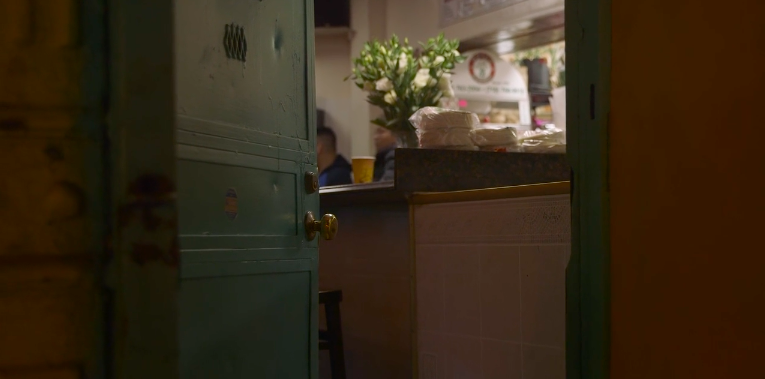
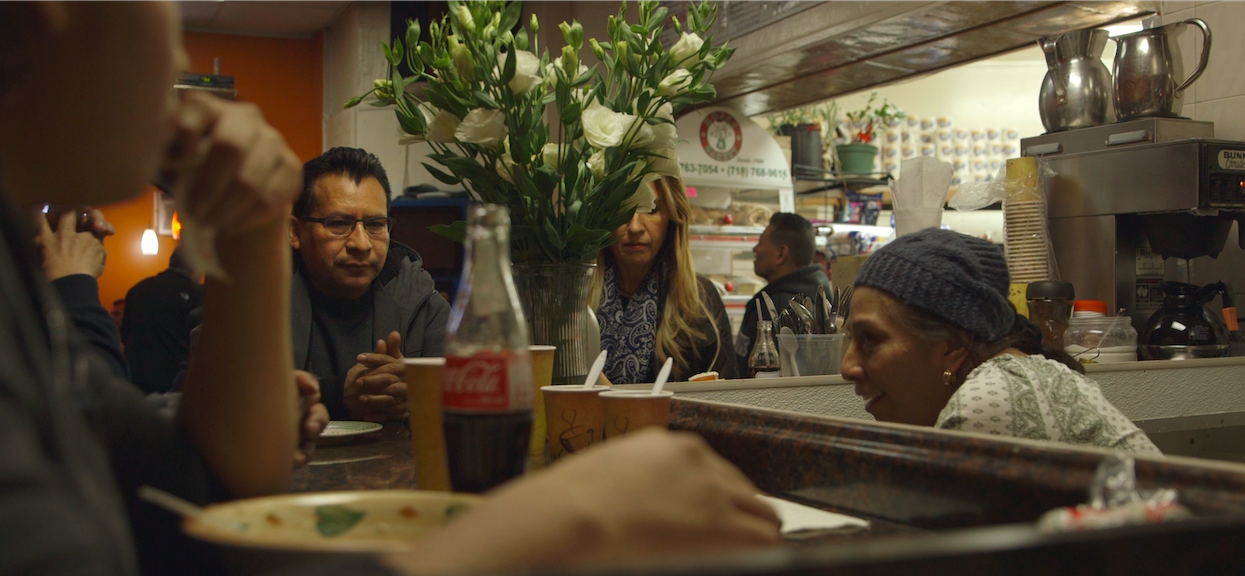
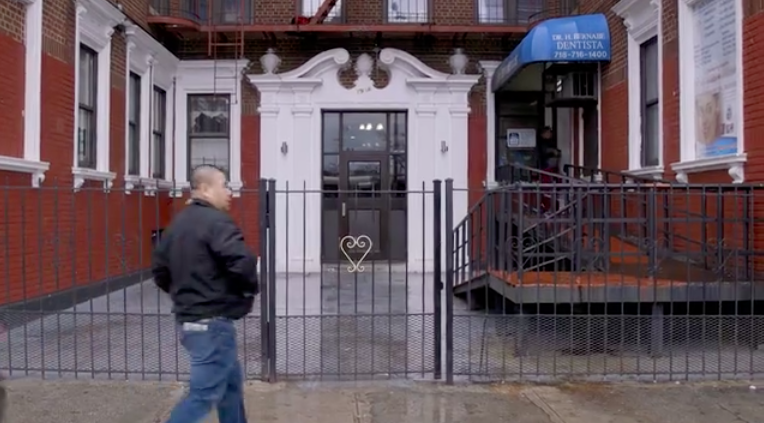
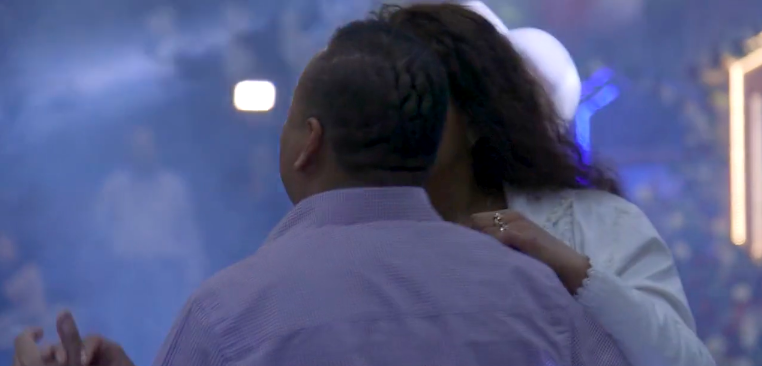
Press
Follow along, share with us & tag on Facebook, and Instagram @uniondocs!
Screenings
BAMCINEMAFEST 2018 – WORLD PREMIERE
- June 23rd, 2018 at BAM Rose Cinemas
Artist's Statement
Mexican identity in the United States is complex and ever-shifting; while Mexican immigrants have been demonized before, during, and after the most recent presidential election, they also comprise one of the largest sources of income for the Mexican state. We first learned about the collective sending of remittances through Hometown Associations (HTAs) thanks to a paper shared with us by scholar Araby Smyth. Intrigued by this form of collective, political and economic organization, and by the potential stories to be told by its members, we pursued a variety of HTAs in New York until settling on the one whose projects had been shown to have the greatest impact on its hometown and that had been operating for several decades.
These projects and the emotional spaces they occupy became a means by which we could examine the dichotomy of power and disenfranchisement felt by the members of this single community. Through their individual stories, the collective history of the group, and our exploration of the spaces that they have constructed for themselves in the United States and in Mexico, we sought to remap the typical story told about Mexican immigrants in this country and pay tribute to what they have been able to build for themselves here and back in their home country. This “remapping” extended to our use of voiceover and tracking shots throughout the piece, both of which seek to mirror the separation between the lives of these individuals and the lives they and others have lived in their hometown. We then juxtaposed these tracking shots with hand-held, “home movie”-style footage to break up our explorations of these spaces and underscore the resilience of these people and this community. Not all members of this HTA have been able to witness the fruits of their labors in Mexico and many have not seen their hometown since they were children. By inhabiting the physical, temporal, and emotional spaces that they have created for themselves across borders, we sought to give dignity to a community that is frequently denied it across this country.
– Adrián Gutiérrez & Grace Remington
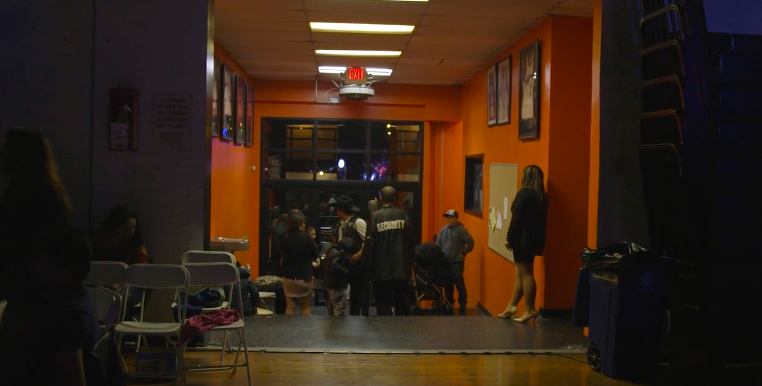


Filmmaker Bios
Adrián Gutiérrez is a producer and director with experience in commercials, documentary films, and educational videos. He is the co-founder of NOMAD Media Group, a Monterrey, Mexico-based production company with more than 100 credits to its name, including a YouTube channel dedicated to Spanish-language science education, “Cielos Despejados.” His documentary feature credits include associate field producer, “Kingdom of Shadows” (Participant Media, 2015) and archival producer, “Chavela” (Music Box Films, 2017).

Grace Remington is a producer who has worked in documentary film and television in the United States, Mexico, and Peru. She worked as the archival producer for “Abstract: The Art of Design,” an eight-episode documentary series directed by Morgan Neville, Richard Press, Chai Vasarhelyi, and Brian Oakes that debuted at Sundance prior to streaming on Netflix in 2017. She also worked as the archival producer on “Year Million” (National Geographic, 2017) and is currently working as a supervising archival producer on an in-production Netflix series and as a story producer for an upcoming Discovery special.

Credits
Co-Directors, Producers, and Editors: Adrián Gutiérrez, Grace Remington
Cinematography: Adrián Gutiérrez
Additional Cinematography: Ivana Hucíková
Location Sound: Grace Remington, Daniel Goodman, Sarah Keeling, Ivana Hucíková, Samuel Lang Budin
Sound Design: Daniel Goodman, Gerardo Villarreal
Color: Edgar Reyna
Project Mentor: Nicolás Pereda
Cast: Justo, Juvencio, Conrado, Teodora, Martín, Ricardo, Silvia, Fermín, Members of Club San Marcos and Club Genaro Chávez, Toltecamila, Puebla, Mexico
Executive Producer: UnionDocs
UnionDocs Collaborative Studio Director: Jen Heuson
UnionDocs Artistic Director: Christopher Allen
Supported by New York Council on the Arts, National Endowment for the Arts, New York Department of Cultural Affairs, Academy of Motion Picture Arts and Sciences, Office of City Council Member Antonio Reynoso, Abelcine & Canon
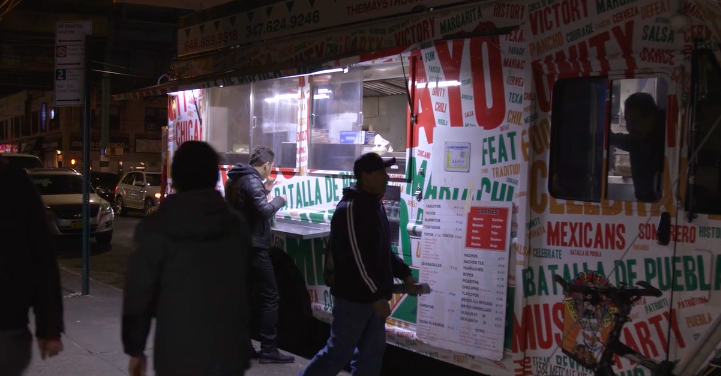
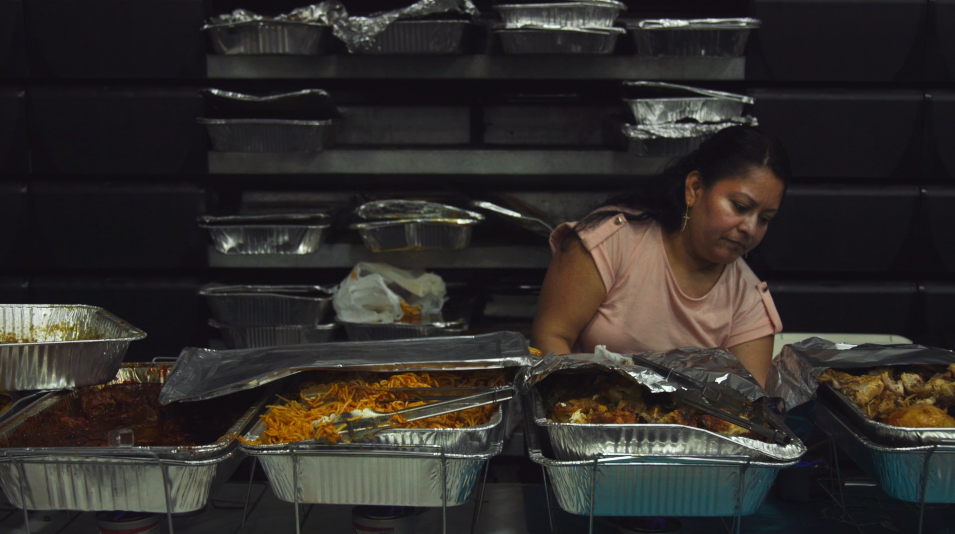
UnionDocs Collaborative Studio
Lo que hemos construido (What We Have Built) is a production of the 2017 UnionDocs Collaborative Studio. Since 2010, UnionDocs Center for Documentary Art has guided select groups of documentary fellows in our Collaborative Studio Program through a 10-month production cycle. Coming from a wide diversity of backgrounds and countries, the CoLab has been an invaluable experience to meet other collaborators, enact ideas, and expand as a filmmaker.
From 2015-2017, the UnionDocs Collaborative Studio worked on multi-platform production JUST TO GET BY. This project highlights the creative solutions and difficult choices that individuals in NYC make every day to survive in the city, at a time when 50% of the population lives near or below the federal poverty level. The project brings attention to the difficult choices and resourceful solutions this underrepresented population must make in order to survive the city today.
JUST TO GET BY developed ways that the authorship of documentary can be shared with the subjects. At the same time, fellows were encouraged to develop work across perceived boundaries of social class, age, and race. Projects are not intended to be “outsider artist” biographies or portraits, rather each short documentary produced offers an attempt to break with the conventions of documentary. They are negotiations of the problematics of representation and portrayals that blur the relationships between the filmmaker and those who are living just to get by.





